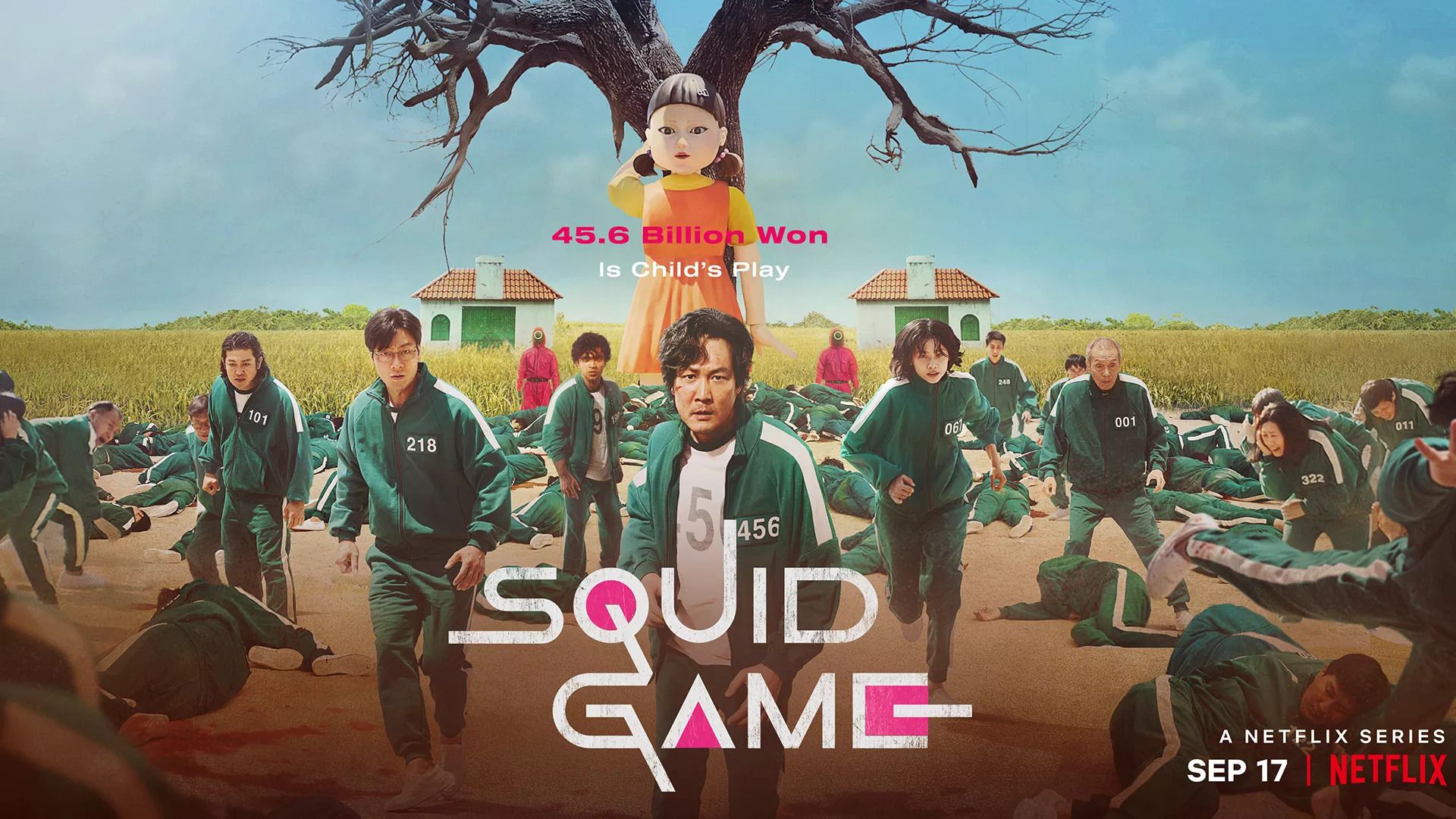Squid Game became the most-watched show in Netflix history. Sitting around 142 million hours watched in a little over a month of its release date on Sept 17. Photo: Courtesy of Netflix
By Alex Avila, Staff Reporter
“Squid Game” is the latest hit series from Netflix that took the U.S by surprise with its gruesome plot and its political showcase on capitalism. The 9-episode drama created, written, and directed by Hwang Dong-hyuk, ranked number one in the U.S and Korea after its release on Sept.17.
The show takes the viewer through a brutal competition where 456 contestants compete in child-like games, like red light, green light, marbles, and hopscotch, to win a total of 45.6 billion won (about 38 million USD). The protagonist, Seong Gi-hun, played by Lee Jung-jae, is a middle-aged, divorced man addicted to gambling. He struggles to support himself financially, his elderly mother, and his daughter.
While in debt, he is invited to play with other contestants who are also in desperate need of money. The big twist of the competition is that losing any of the six games results in death, something a group of wealthy elites finds pleasurable as they watch and make bets on who the winner will be. Every time a contestant dies, the overall prize pool increases.
Director Hwang’s main purpose in creating “Squid Game” was his desire to “write a story that was an allegory about modern capitalist society, somewhat like the extreme competition of life.” His main inspiration comes from his personal experiences, where he also struggled in debt in 2008. The series has gained major popularity for its well-written plot and mysterious characters, but the main drive comes from its representation of modern-day capitalism. The viewers become easily invested in the struggles of the main characters, which are presented early on in the story, but the pity of the viewers is then channeled to uncanniness as the players begin to realize what people are willing to do to be financially stable.
Other notable influences come from Japanese Manga with similar premises such as “Gambling Apocalypse: Kaiji,” “Liar Game,” and “Battle Royale.” The genre which “Squid Game” fits into known as “Death Games” is popular in Asia, which often makes political and sociological statements on capitalism.
Lee’s strong performance is accompanied by the deuteragonist Cho Sang-woo, performed by Park Hae-soo, a childhood friend of Gi-hun who was formally successful but in debt from bad investments. The tritagonist is Kang Sae-byeok, played by first-time actress, Jung Ho-yeon, a North Korean defector who wishes to win to reunite her family together.
Nine episodes long of about one hour; viewers may feel the story becomes rushed as it nears its final episodes, especially with its side plot following a police officer, Hwang Jun-ho, who goes undercover to find his brother who has gone missing.
This side plot leads to a lot of tension, and the show is not about the games and death anymore but about an undercover cop trying to discover the secrets behind the game. This side story, however, feels a bit disconnected from the main plot and predictable. Some of the games can also be predictable where the main characters team up together, with death being the result of losing. Some of the games lose tension when the audience knows that the main leads will succeed.
The overall conclusion of the main plot is also one of the show’s main weaknesses as it attempts to shock and surprise the viewers and end up falling flat, resulting in earlier episodes not feeling as powerful as a result.
Fans of “Squid Game” can also look into similar shows like “Gambling Apocalypse: Kaiji,” a manga series that started in 1996, which talks about 21-year-old Kaiji Ito, who, very similarly to “Squid Game” protagonist Gi-Hun is addicted to gambling, struggling financially and is coursed into joining a competition against other people in a similar situation. ‘Kaiji’ has also been adapted into a 52-episode-anime series in 2007 that ended in 2011.
Another similar story is “Battle Royale,” a 1999 novel by Koushun Takami, adapted in 2000 into a film directed by Kinji Fukusaku and manga also written by Takami. Set in a fictional fascist Japan where the Japanese government forces a random junior-high class into killing each other until one survives in a program designed to instill fear in the rebellious youth.
“Squid Game” can come off a bit unoriginal at times with its similarity to its inspirations and have some story beats that can be a bit disappointing. Still, overall, it gives the audience a good show with good acting, a compelling message, and commentary on capitalism and human greed thanks to Hwang’s personal experience with debt and the grievances resulting from a capitalist society.

